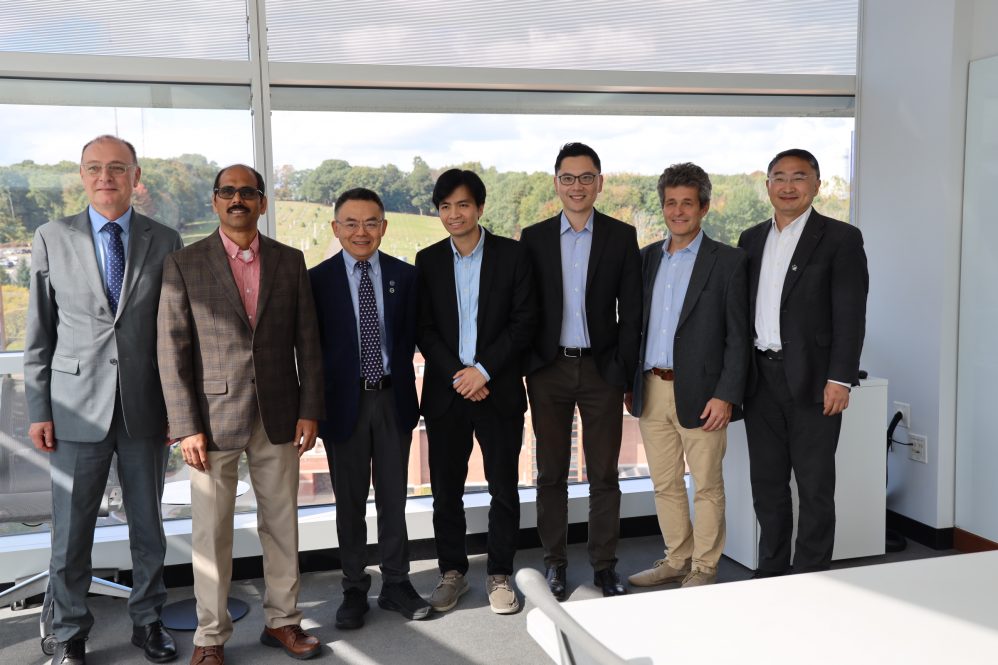UConn Associate Professor Thanh Nguyen’s microneedle patch vaccine delivery technology may be useful in the efforts to eradicate polio, a serious disease, throughout the world. He has received significant funding to back his research from The Bill & Melinda Gates Foundation, which has awarded a series of grants totaling $6.6 million.
Nguyen, an associate professor in the College of Engineering’s School of Mechanical, Aerospace, and Manufacturing Engineering, is one of UConn’s leading research fundraisers. His work has garnered significant funding support from the National Institutes of Health and the National Science Foundation in addition to the Gates Foundation.
Funding from the foundation has more than doubled since the initial award in 2023, which aimed to assess the manufacturability of Nguyen’s microneedle array patch vaccine delivery platform and gather data on the technology’s application to the foundation’s HIV vaccine efforts. The new funding supports Nguyen’s research and innovation on a microneedle array patch designed to deliver multiple human vaccines at once.
In late September of this year, Nguyen received $4 million in funding from the foundation to test if the patches can be designed to deliver a complex combination vaccine, a new trivalent polio vaccine plus the pentavalent vaccine that addresses five diseases or viruses at once: diphtheria, tetanus, pertussis, Hepatitis B, and Haemophilus influenzae type b.
Polio continues to affect populations in developing countries, with the most cases reported in Afghanistan and neighboring Pakistan. The MAP delivery method is considered to be less painful than traditional needle and syringe delivery, delivering the vaccines through the skin as opposed to the deeper injections into the muscle, potentially overcoming issues of vaccine hesitancy. Nguyen hopes that if successful, the polio microneedle patch will prove a useful tool in the effort to eliminate the threat of polio once and for all.
Nguyen and his laboratory now have the support to build up productivity, with $6.6 million in funding from the Gates Foundation. He is partnering with LTS Lohman, one of the world’s leading manufacturers of microneedle systems, to develop an industrial fabrication process for making patches. Concurrently, he is expanding the size of the laboratory, creating opportunities with UConn students and expanding the large animal experimental capacity at UConn to explore vaccine science.
The grant also surpasses a milestone in fundraising for Nguyen and UConn. Nguyen has now earned a total of $25 million in research funding from the Gates Foundation, National Institutes of Health (NIH), National Science Foundation, and others.
Nugyen’s research expands beyond vaccine delivery into other microneedle patch capabilities. In 2024, he received an NIH RO1 grant to test the effectiveness of anti-HIV antibody patches in small and large mammals, with the eventual goal of vaccinating infant humans who breastfeed from infected mothers. Further, Nguyen won a second RO1 grant for a project investigating acceleration of healing defects in the largest bones of the body, such as the femur and tibia. The team is working to minimize potential adverse events of conventional growth-stimulation methods (e.g. using stem cells or biochemical cues) through the application of biomaterials as an electrically active scaffold over a defect.



